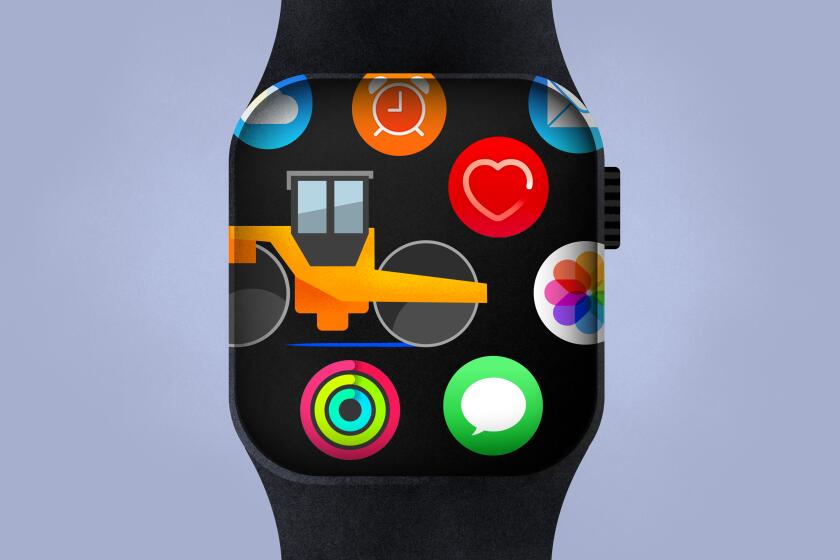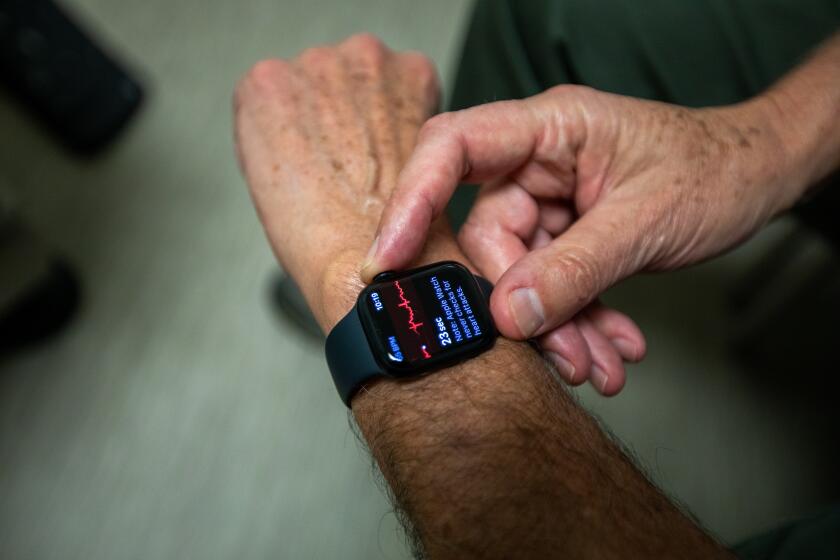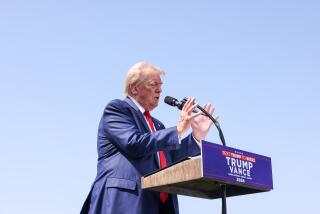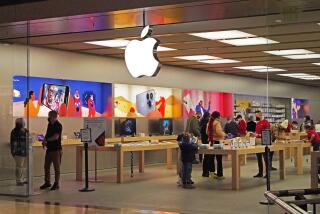Apple is pulling two of its watches off shelves by Christmas due to patent dispute
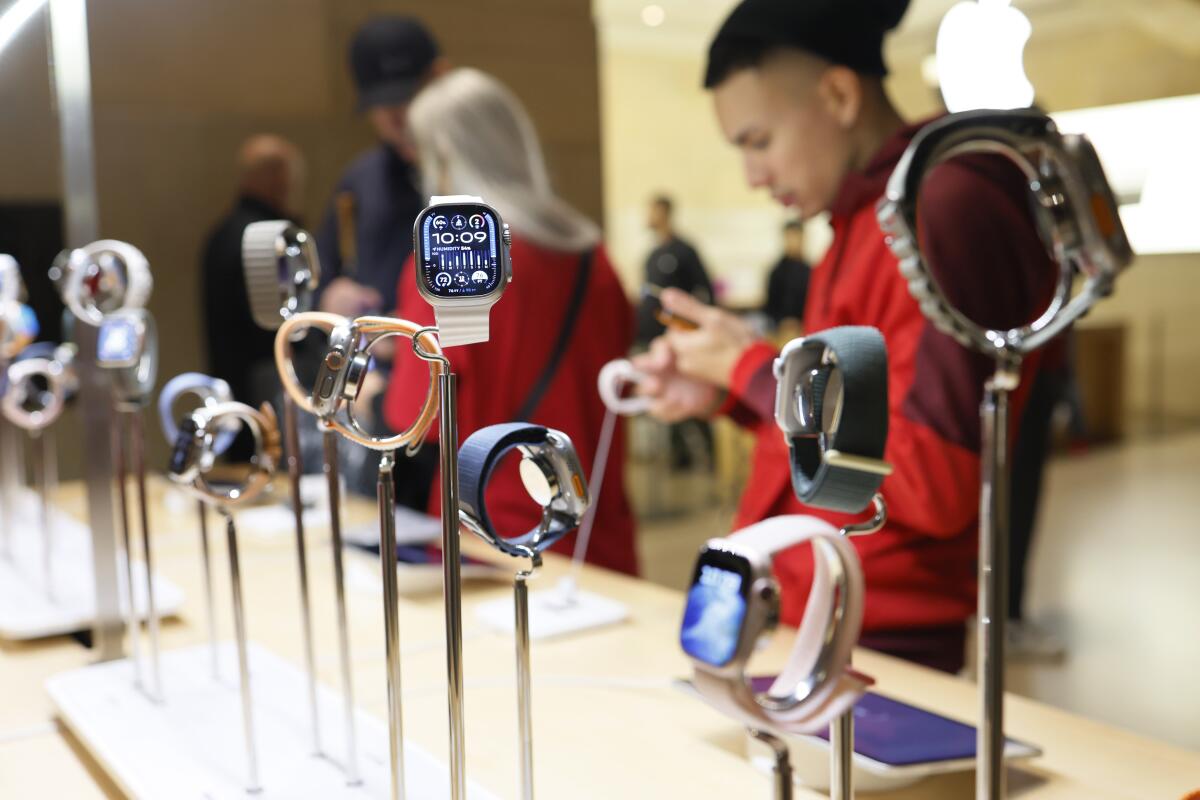
- Share via
Apple is pulling two of its most popular watch models from shelves this week. By Christmas Day, if a trade ruling stands, those watches will be illegal to import into the U.S.
Online orders for the Series 9 and Ultra 2 models will end Thursday, and the watches will be cleared out of the retail stores by Sunday, which is Christmas Eve. The pause in Apple Watch sales comes as the tech giant prepares to comply with an International Trade Court ruling that places an import ban on the products.
It’s the latest development in a remarkable and potentially wide-ranging patent dispute between two California tech companies, one of which happens to be the richest corporation in the world.
In late October, the International Trade Court ruled that Apple’s watches contain technology that violates patents held by the Orange County-based medical tech company Masimo — and that the infringing tech must either be removed, or the watches, which are largely manufactured in China, would be banned from import into the United States.
The ruling is the result of a David vs. Goliath legal battle that stretches back years. Joe Kiani, the CEO and founder of Masimo, has long argued that Apple’s Watch products infringe on patents for his pulse oximetry technology — tech that allows the user to take a crucial reading of oxygen levels in blood.
Medical device entrepreneur Joe Kiani is on a mission to stop Apple from crushing smaller competitors. His lawsuit could get the Apple Watch banned from being imported into the U.S.
Apple met with his company more than a decade ago, and they discussed the technology, Kiani says, and he thought they were destined for a partnership, or, perhaps, an acquisition. Instead, Apple began to hire away his executives and top talent, who quickly began patenting similar technologies for Apple, which then began turning up in Apple Watches.
So Kiani sued. The trade court’s initial ruling in January 2023 found that Apple violated Masimo’s patent for pulse oximetry technology, and the October decision confirmed the earlier one. The ruling is now under presidential review, and President Biden can veto the ban. Such presidential interventions are rare, but Apple has a powerful lobbying presence on Capitol Hill.
“Maybe Apple’s Board will ask Tim Cook, ‘Why didn’t you buy Masimo or license their technology in 2013? Did you even try to settle with Masimo before you took this step?’ ” Masimo’s Kiani says. “That is a hope, but one that makes me feel better.”
In a statement, Apple said that “While the [presidential] review period will not end until December 25, Apple is preemptively taking steps to comply should the ruling stand. This includes pausing sales of Apple Watch Series 9 and Apple Watch Ultra 2 from Apple.com starting December 21, and from Apple retail locations after December 24.”
The company added that “Apple’s teams work tirelessly to create products and services that empower users with industry-leading health, wellness, and safety features. Apple strongly disagrees with the order and is pursuing a range of legal and technical options to ensure that Apple Watch is available to customers. Should the order stand, Apple will continue to take all measures to return Apple Watch Series 9 and Apple Watch Ultra 2 to customers in the U.S. as soon as possible.”
For Joe Kiani, the fight with Apple has been about more than patents. It’s about standing up to tech giants that shut out smaller competitors.
Kiani, meanwhile, is keen to continue to press Apple further.
“Apple can avoid an ITC injunction by making their watches in the U.S.,” he tells me, pointing out that Masimo does its manufacturing in New Hampshire and Southern California. “What is in their relationship with China, that makes this not an option for Apple?”
The legal battle is far from finished, despite the fairly stunning turn of events. Apple is not used to losing legal challenges. Kiani estimates he’s already spent $60 million in legal fees on this fight, and is prepared to spend twice that. But for now, he’s enjoying the victory.
“Now the world knows we are the true inventors and creators of this technology and not Apple,” he says.
